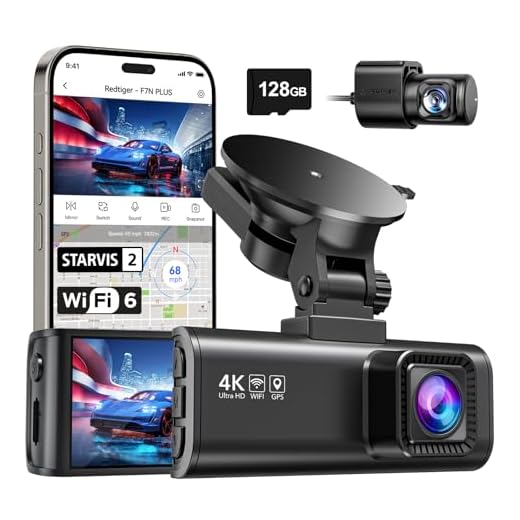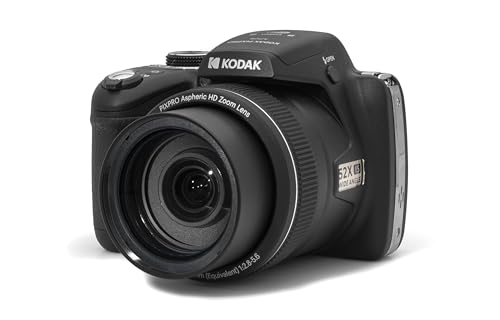


Dash cams have become increasingly popular for recording footage while driving, but can they also be used as security cameras when you’re not on the road? The answer is not as straightforward as you might think. While dash cams are designed to capture video of the road ahead, some models can be repurposed for home security use with a few tweaks.
One of the main challenges of using a dash cam as a security camera is its power source. Most dash cams are designed to be powered by a car’s cigarette lighter socket, which means they may not have a built-in battery to operate when not connected to a vehicle. However, there are some models that come with a rechargeable battery or can be connected to a power bank for portable use.
Additionally, dash cams typically have a narrow field of view focused on the road ahead, which may not be ideal for monitoring a larger area like a room or backyard. Some dash cams offer features like motion detection and loop recording that can be useful for security purposes, but they may not have the same capabilities as dedicated security cameras.
Can Dash Cams Be Used for Security?
Dash cams are primarily designed for recording footage while driving, but they can also be used as a security camera in certain situations. Here are some ways in which dash cams can be utilized for security purposes:
- Monitoring Parked Vehicles: Dash cams with parking mode can be used to monitor parked vehicles and capture any suspicious activities or vandalism.
- Home Security: Dash cams can be repurposed to monitor the exterior of a home or property, providing an additional layer of security.
- Recording Incidents: In the event of a break-in or other security incident, dash cam footage can serve as valuable evidence for law enforcement.
- Remote Monitoring: Some dash cams offer Wi-Fi connectivity, allowing users to remotely access live footage or recordings from their mobile devices.
While dash cams may not have all the features of dedicated security cameras, they can still be a useful tool for enhancing security and providing peace of mind.
Overview of Dash Cams
Dash cams, or dashboard cameras, are small video cameras that are designed to be mounted on a vehicle’s dashboard or windshield. They are primarily used to record video footage of the road ahead while driving. Dash cams have become increasingly popular in recent years due to their ability to provide evidence in case of accidents or other incidents on the road.
Most dash cams are equipped with features such as loop recording, G-sensors, and GPS tracking. Loop recording allows the camera to continuously record video footage and overwrite older files when the memory card is full. G-sensors detect sudden movements or impacts and automatically save the current video file to prevent it from being overwritten. GPS tracking provides information on the vehicle’s location and speed, which can be useful for insurance purposes or in legal proceedings.
While dash cams are primarily used for recording video footage while driving, some models also have features that allow them to be used as security cameras when the vehicle is parked. These features include motion detection, parking mode, and time-lapse recording. Dash cams can be a useful tool for monitoring your vehicle when it is parked, deterring theft or vandalism, and providing evidence in case of a break-in.
Similarities Between Dash Cams and Security Cameras
Both dash cams and security cameras are designed to record footage for monitoring and surveillance purposes. They use similar technology such as video recording capabilities and motion detection.
| Feature | Dash Cams | Security Cameras |
| Video Recording | Both devices are equipped with cameras that can record video footage. | Security cameras are specifically designed for monitoring and surveillance purposes. |
| Mounting Options | Dash cams can be easily mounted on car windshields or dashboards. | Security cameras can be mounted on walls, ceilings, or other strategic locations for surveillance. |
| Storage | Dash cams typically use loop recording to overwrite old footage, while some models have internal storage. | Security cameras often have options for cloud storage or local storage devices. |
| Motion Detection | Many dash cams feature motion detection to start recording when movement is detected. | Security cameras commonly use motion detection to trigger recording or alerts. |
Differences Between Dash Cams and Security Cameras
Dash cams and security cameras serve different purposes and have distinct features that make them suitable for specific uses. Here are some key differences between dash cams and security cameras:
- Intended Use: Dash cams are primarily designed for use in vehicles to record footage of the road and surroundings while driving. Security cameras, on the other hand, are stationary devices used to monitor and record activity in a specific area, such as homes, businesses, or public spaces.
- Mounting: Dash cams are usually mounted on the windshield or dashboard of a vehicle, providing a forward-facing view. Security cameras can be mounted on walls, ceilings, or poles to cover a wider area and capture different angles.
- Features: Dash cams often have features like loop recording, G-sensors, and GPS tracking to document driving incidents. Security cameras may include night vision, motion detection, two-way audio, and remote access for monitoring and surveillance purposes.
- Storage: Dash cams typically use removable microSD cards for storage, with limited capacity for recording footage. Security cameras may have built-in storage or connect to a network-attached storage (NAS) system for continuous recording and longer retention periods.
Benefits of Using Dash Cams for Security
Using dash cams for security purposes offers several benefits:
- Continuous Monitoring: Dash cams provide round-the-clock monitoring of your vehicle or property, capturing any suspicious activity.
- Video Evidence: In case of any incidents or crimes, the recorded footage serves as valuable evidence for authorities and insurance claims.
- Deterrent to Theft: The presence of a visible dash cam can deter potential thieves or vandals from targeting your vehicle or home.
- Remote Access: Some dash cams offer remote access to live footage, allowing you to monitor your property from anywhere.
- Peace of Mind: Knowing that your property is under surveillance can give you peace of mind and a sense of security.
Limitations of Using Dash Cams for Security
While dash cams can be a convenient and cost-effective option for capturing footage of incidents on the road, they come with limitations when used as security cameras:
1. Limited field of view: Dash cams are designed to capture footage of the road ahead, so they may not provide a wide enough field of view to cover an entire room or area.
2. Power source: Dash cams are typically powered through a vehicle’s cigarette lighter or USB port, which may not be practical for continuous use in a stationary security setup.
3. Lack of connectivity: Most dash cams do not have built-in Wi-Fi or cloud storage capabilities, making it difficult to access footage remotely or store it securely.
4. Limited functionality: Dash cams are primarily designed for recording video while driving, so they may lack the advanced features and settings found in dedicated security cameras.
5. Legal considerations: Using a dash cam for security purposes may raise privacy and legal concerns, especially if it captures footage of individuals without their consent.
Legal Considerations When Using Dash Cams for Security
When considering using a dash cam as a security camera, it is important to be aware of the legal considerations involved. While dash cams are primarily designed for recording footage while driving, they can also be used for security purposes in stationary vehicles or homes. However, there are certain legal implications to keep in mind:
Privacy Laws
Before using a dash cam for security, it is crucial to understand the privacy laws in your jurisdiction. Recording audio or video footage of individuals without their consent may violate privacy rights and lead to legal consequences. Make sure to comply with local laws regarding surveillance and privacy when using a dash cam for security purposes.
Data Protection
Another important consideration is the protection of data captured by the dash cam. Ensure that the footage is securely stored and accessed only by authorized individuals. Implement measures to prevent unauthorized access or misuse of the recorded data to protect the privacy of individuals and comply with data protection regulations.
| Legal Considerations: | Key Points: |
| Privacy Laws | Obtain consent for recording and comply with privacy regulations. |
| Data Protection | Securely store and restrict access to recorded footage. |
Recommended Dash Cams for Security Purposes
If you are considering using a dash cam as a security camera, here are some recommended options that offer great features for surveillance purposes:
1. BlackVue DR900S-2CH
The BlackVue DR900S-2CH is a high-end dash cam that provides excellent video quality and reliable performance. It has a dual-channel setup, allowing you to monitor both the front and rear of your vehicle. With built-in Wi-Fi and GPS, this dash cam is a great choice for security applications.
2. Thinkware F800 Pro
The Thinkware F800 Pro is another top-notch dash cam that offers advanced features for security monitoring. It comes with built-in Wi-Fi, GPS, and a parking mode that can detect motion and impact. The F800 Pro delivers clear and crisp video footage, making it a reliable option for security purposes.
These are just a few of the recommended dash cams that can be used effectively as security cameras. Make sure to choose a model that meets your specific security needs and provides the features you require for surveillance.







